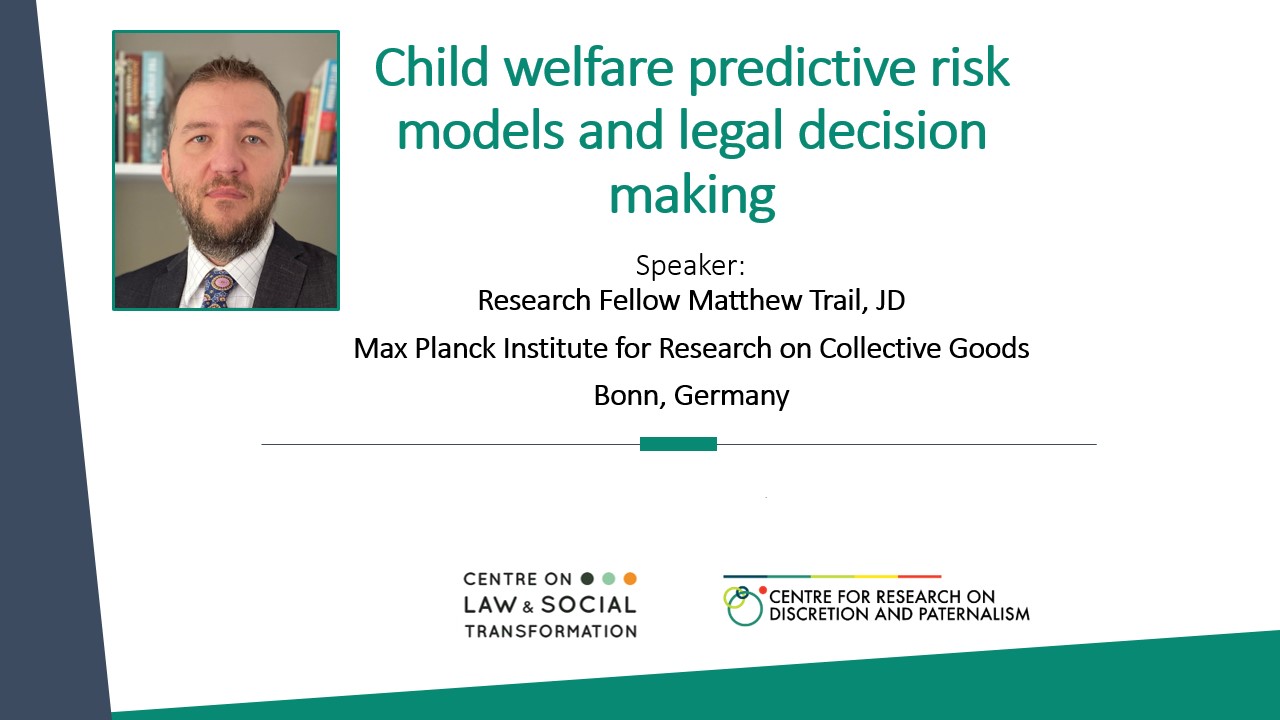Video: In this seminar titled Child Welfare Predictive Risk Models and Legal Decision-Making, Matthew Trail discussed the use of algorithmic predictive modeling in child welfare agencies to assist in decision-making regarding foster child risk, removal, and placement. Trail explored the controversies surrounding the development of these models, particularly the biases present in the data used to create them. Despite these concerns, proponents view predictive models as a potential tool for improving decision-making and enhancing the safety of children at risk. Trail highlighted that, up to this point, all predictive models have been used exclusively by child welfare agency employees in the early stages of removal decisions, and none have yet been incorporated into legal arguments or courtroom decisions made by attorneys or judges. This study, however, was the first to examine the effects of such models on legal decision-making by child welfare attorneys and judges. By including predictive risk scores (low, medium, or high) in vignettes based on actual disputed removal cases, the study revealed how legal decision-making could be influenced by these risk scores—an issue of significant importance to the legal community before any widespread implementation of predictive models in the courtroom.
Matthew Trail, JD, spent fifteen years working as an attorney ad litem representing children in foster care, with a special focus on children with disabilities and mental health issues stemming from trauma. He began his career at a legal aid office in Florida before moving to Houston, where he eventually became the managing attorney for Disability Rights Texas’ foster team. In 2020, Trail joined the Max Planck Institute for Research on Collective Goods Behavioral Law, Bonn, Germany section as a research fellow, where he focused on decision-making in foster care.

